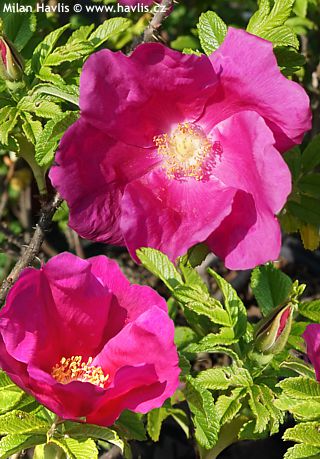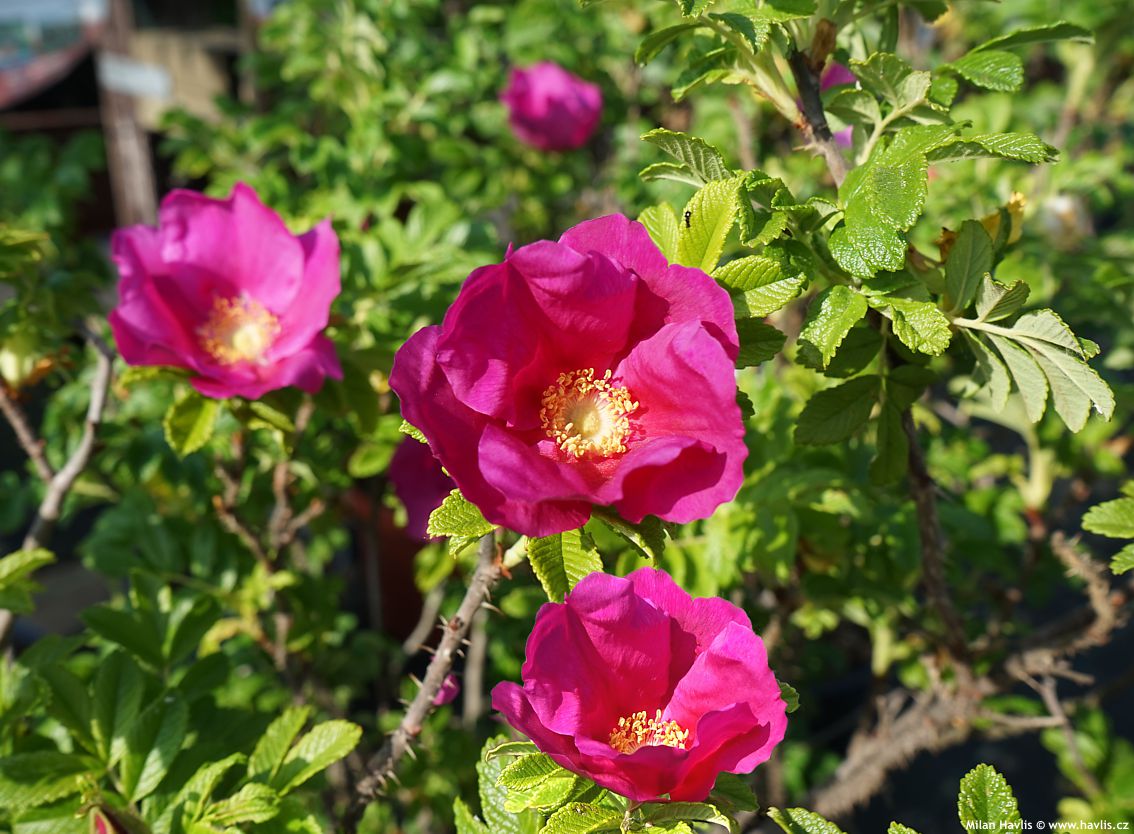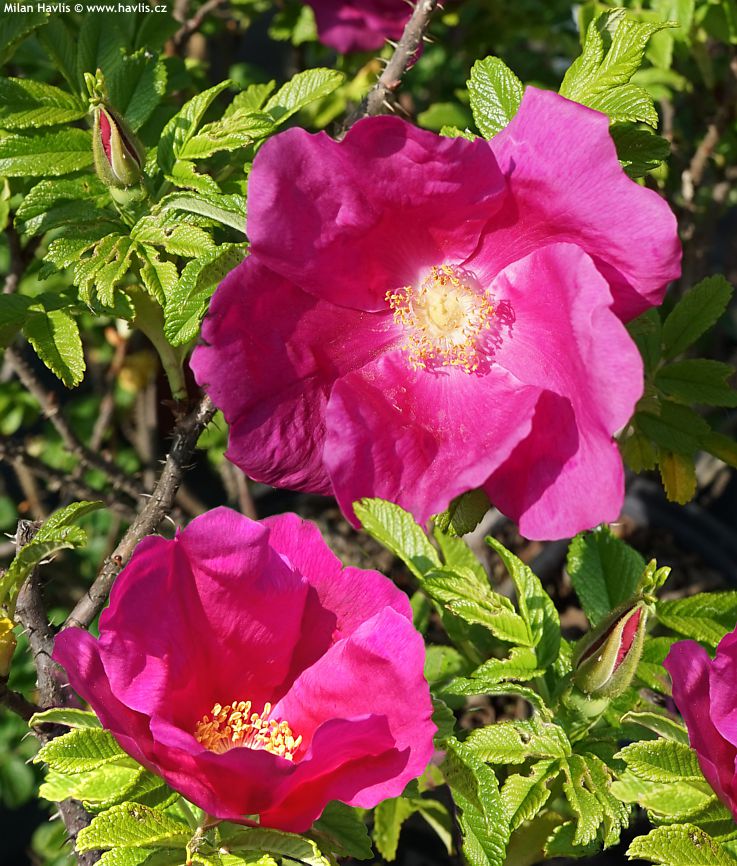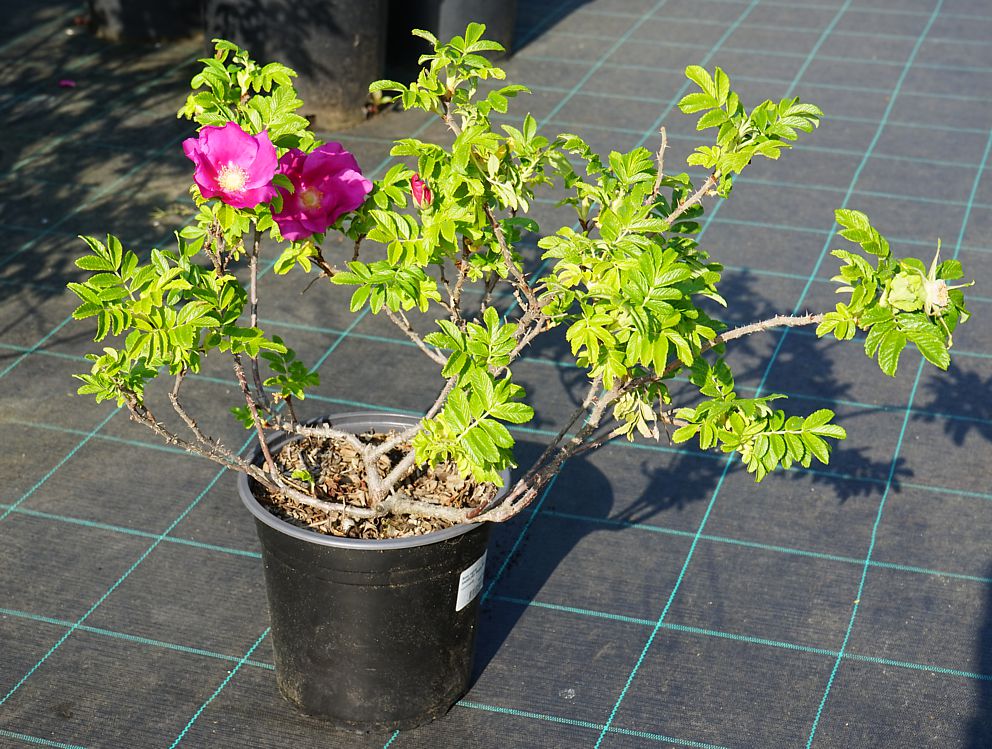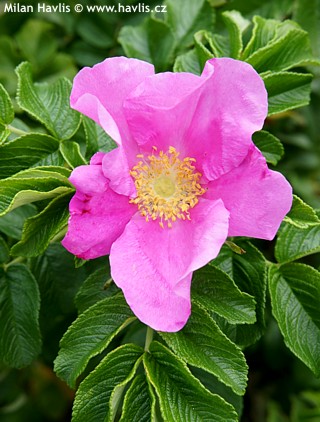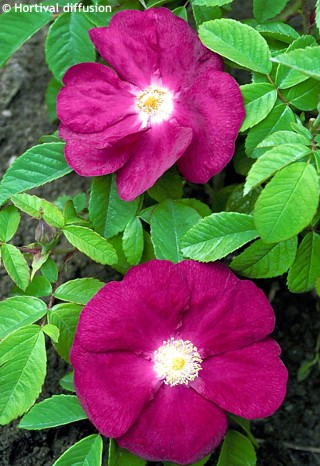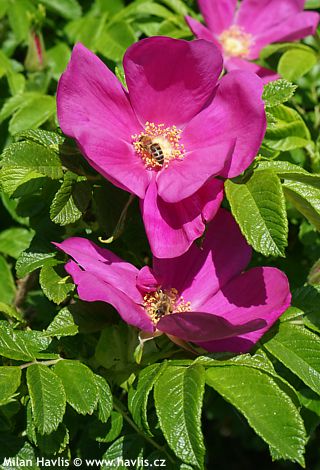Rosa rugosa 'Minrugo1e' ANGELIA® EGLANTINE Ramanas rose
Rosa
Ramanas rose is a top 5 rose among landscape architects. It has so many positive features that make it impossible not to grow at least a few in every road. Among all its advantages here are just some of them: absolutely care-free, extremely hardy, fully disease-resistant, and most importantly long-flowering. It originates in eastern parts of Russia, E. Asia and Japan.
ANGELIA® EGLANTINE is a Ramanas rose variety bred French nursery Minier/Hortival Diffusion and introduced in 2019. European plant patent No. 55023 was granted in 2020. It bears large, 7-9 cm across, single, vivid purple pink, sweetly fragrant flowers. They are produced in profusion from late May for about 4 weeks and then the shrub scarcely makes new flowers until late summer. Flowers are followed by deep orange red to scarlet red hips. Those are edible and healthy but contain a lot of hairs which may be irritative for some, so it is suggested to strain the flash before consumption. ANGELIA® EGLANTINE grows more slowly into a compact shrub.
Deciduous leaves are wrinkled, rich green and glossy, composed of 5-9 narrowly oblong leaflets. There is usually a lot of them, and they completely cover the plant making it a great, non-transparent hedging choice. The stems are prickly, densely covered with short spines like hairy locust. It grows vigorously, moderately to fast, and can be pruned in early spring.
Ramanas rose will grow almost anywhere – it tolerates wide range of soils, adverse conditions, and city pollution. For best results, however, grow it in medium-fertile soil in full sun, and keep the soil moist after transplanting before the plant grows large enough to cast enough shade to its roots. Hardy to about -34 °C.
Last update 18-06-2023
Goods are shipped all over Europe. For Russia and U.K. and for further details please read about SHIPPING OPTIONS HERE.
Are you interested in a serious discount for orders NOV-FEB? Check your options here.
THE PRICES INCLUDE VAT of 15%. For quick conversion you can use 1 CZK = approx. 0.04 EUR
- STANDARD QUALITY - Plants of this group are 1st class quality with number of branches and overall density adequate to their size and age, considering they were container grown.
- DE LUXE QUALITY - This label guarantees a luxurious quality of manually selected plants that, compared to their height and age, are exceptionally dense and beautiful.
- EXTRA - These plants are usually mature and bigger specimens with exceptional overall appearance.
- STANDARD (as described in the plant form) means a tree with a trunk of 190-210 cm and a crown at the top, unless specified differently. The commercial size for trees is their girth measured in the height of 1m from ground.
- HOBBY - These plants are of the same quality as our standard-quality plants but younger and therefore cheaper.
- SHRUB - a woody plant with branches growing bushy from the ground level.
- HALF-STANDARD or MINI-STANDARD - a small tree with shorter trunk, its size is usually specified.
- FEATHERED - These are trees with branches growing already from the base of the trunk and up along the stem.
- GRASSES and PERENNIALS - Sizes given usually read the diameter of the pot or the clump, as specified.


































